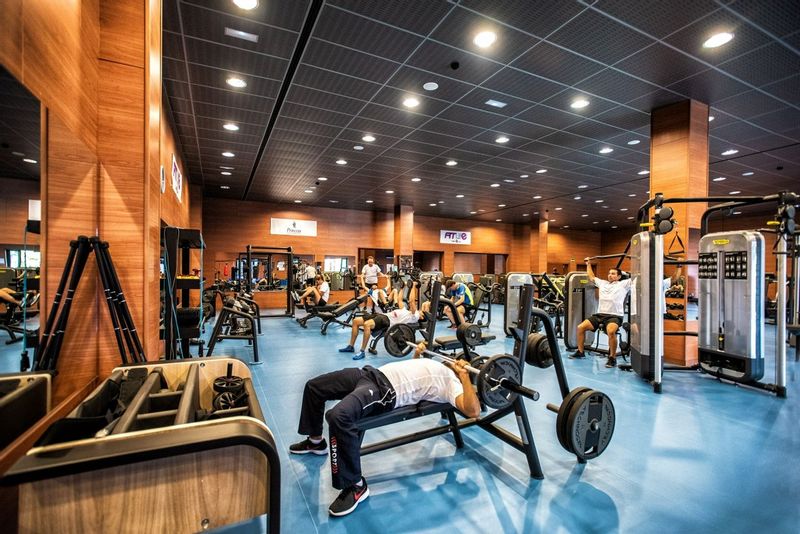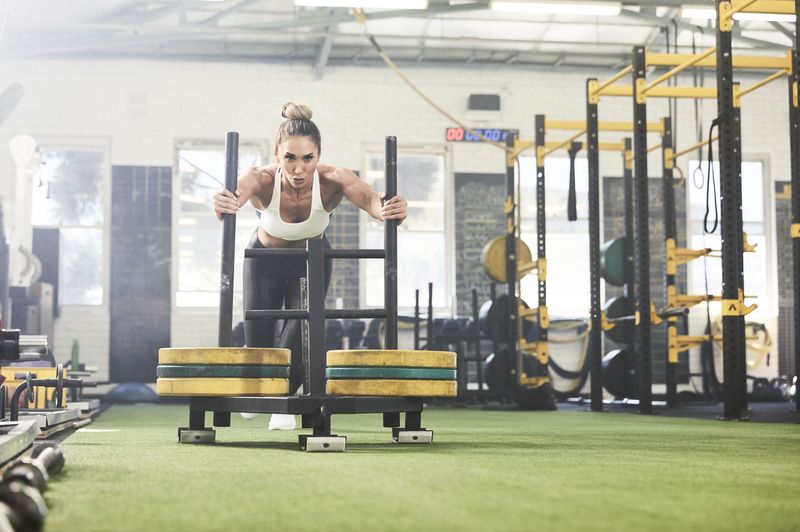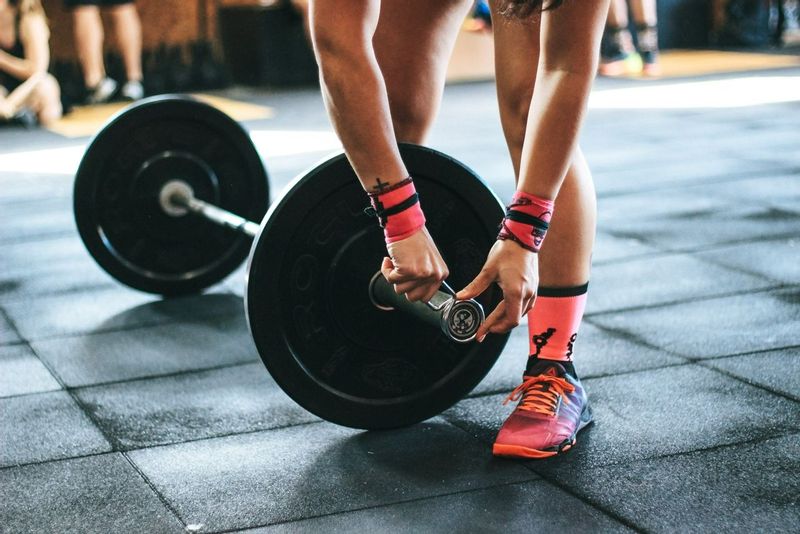Why Strength Training is Important in your 30s and Beyond

As early as our 30s, muscle strength and bone density begin to decline. When we hit our 40s, a drop in levels of growth hormone leads to reduced muscle mass, increased fat and reduced energy levels. In turn, this all contributes to a slower metabolism. Women may also notice more fat storage around the abdomen due to a drop in oestrogen and should be aware that this also causes a sharp decrease in bone density.
The good news is that we can help to counteract these processes with resistance training - the most effective way to strengthen bones and muscles. Any weight-bearing aerobic exercise will help; for example, walking and tennis stress the bone mechanically, forcing it to adapt and become stronger. Lifting weights, however, has the edge because it can build both muscle strength and capacity in the tendons and ligaments that connect the bone to muscle. It also involves the hips, spine and wrists, strengthening the bones in these sites which are the most likely to fracture as we age. And there's something for everyone: bodyweight exercises, plus even Yoga and Pilates help build muscle strength and load the bone.
What else is strength training good for in our 30s and beyond?
- Fat loss: When clients of a certain age come to me asking me what ab exercises they can do to help them lose their belly, they're surprised when I prescribe lots of strength training – unfortunately, you can't spot-reduce fat, but increasing lean body mass by building muscle is a sure-fire way to rev up your metabolism and increase the number of calories you burn at rest.
- Preventing physical health issues: It's a low impact form of cardio and vastly improves your cardiac health in general. At the same time it strengthens your joints with less risk of injury, building up your bones and reducing your chances of developing conditions such as osteoporosis Increased muscle mass and reduced fat levels will help to counteract diseases such as type 2 diabetes and heart disease.
- Healthy mind: Resistance training is one of the best ways to tackle mental health issues such anxiety and depression, which can be brought on by the stress of greater pressure and responsibilities that come as we get older, as well as major life events and hormonal changes. On top of the short-term endorphin rush, building up your physical strength will have a profound effect on your mental strength and your approach to every-day life.
- Increased mobility and functionality for everyday life: Strength training will help you stay more supple as well as helping you to improve your posture and maintain it as you get older.

Where do I start?
- If you're a complete novice, I'd highly recommend seeking advice from a fitness professional to help you build strength safely and make sure you master the correct techniques before lifting anything too heavy.
- Compound moves that work more than one muscle group are time-saving and also burn more calories. For example, squats, deadlifts, bench presses and shoulder presses are great moves to build up lean body mass and rev up your metabolism.
- Aim for 2-3 strength training sessions a week alongside a couple of days for active recovery such as walking, swimming or cycling. Rest days and active recovery are important for encouraging blood flow and the flow of nutrients which are vital for cellular repair.

Tips to Stay on Track
- Join a body pump class or similar at your local gym – working out with others will help you stay more motivated.
- If you're reluctant to join a gym or find you're short on time during the week, it's worth investing in some versatile resistance equipment such as dumbbells and kettlebells. That way it's much easier to fit in a couple of short workouts around your weekly routine.
- Consider a tailored fitness or bootcamp holiday – here you’ll have everything you need to set you up for effective strength training in the long run. From experienced trainers who can offer tailored advice and help you with your form to talented chefs who can put together a nutrition plan that aligns with your health goals.
- Download an app such as Sweat (try the PWR plan) or Tone & Sculpt – this will help you learn the basics and give you a progressive programme to follow.
- As always, make sure you eat a nutritious, balanced diet to give you the energy to sustain your training efforts; include slow-release carbs, plenty of protein, fresh fruit and veg plus unsaturated fats. This will help your muscles recover and get stronger. Of course you can allow yourself treats or cheat days if you eat well the majority of the time.
In short, there's a form of strength training for everyone, whatever age or ability you are – it's never too late to start. The benefits are endless and the work you put in now will see you reap the rewards both in the short and long-term. Just remember you can't out-train a bad diet so none of the above will count for nearly as much if you're not mindful about what you put in your body.
Talk to one of our Wellness Travel Specialists on 0203 397 8891 or contact us here to discuss tailor-making your ideal fitness retreat!
About Eleanor
|
Eleanor is a Level 3-qualified personal trainer who works with clients of all ages and levels of fitness. Her tailored programmes incorporate a mixture of low/high intensity interval training plus resistance work and she is qualified to advise on nutrition to compliment this. She is also a single mum to a 5-year-old boy so recognises the challenges of balancing a busy schedule with a healthy lifestyle. Visit Eleanor’s website here Follow Eleanor on Instagram here |


